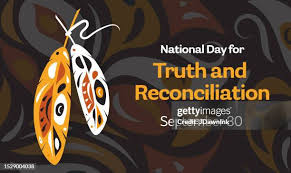
Introduction
Reconciliation Day is an important observance in Canada aimed at fostering awareness, understanding, and positive relationships between Indigenous and non-Indigenous communities. This day serves as a reminder of the historical injustices faced by Indigenous peoples and the ongoing efforts for healing and collaboration. Recognizing Reconciliation Day is crucial in the journey towards creating a more inclusive and equitable society.
Historical Context
The establishment of Reconciliation Day in Canada can be attributed to the Truth and Reconciliation Commission (TRC) which released its final report in 2015, detailing the impact of residential schools on Indigenous communities. The TRC’s mandate included acknowledging the harm done through these institutions and promoting healing by encouraging Canadians to respect and acknowledge Indigenous cultures and histories.
Events and Observances
Each year, on September 30th, individuals and communities across Canada observe Reconciliation Day through various events, educational programs, and community activities. Schools often hold discussions around Indigenous histories, cultures, and rights to foster understanding among students. Community gatherings may include storytelling sessions, workshops, and performances that celebrate Indigenous art and voices.
Federal, provincial, and municipal governments also participate in these observances, with many issuing statements acknowledging the significance of the day and the ongoing challenges faced by Indigenous populations. Educational institutions play a pivotal role in this by implementing curriculums that include Indigenous perspectives and teachings, thus building awareness from a young age.
Importance of Reconciliation Day
Reconciliation Day holds profound significance as it not only commemorates the past but also shapes the future of Indigenous and non-Indigenous relations in Canada. It encourages individuals to reflect on their roles in reconciliation efforts and inspires collective action toward fostering inclusive and supportive environments. This day serves as an opportunity for Canadians to engage in dialogue, recognize systemic inequalities, and work collaboratively towards a shared future.
Conclusion
As Reconciliation Day continues to gain recognition across the nation, its importance will only grow in light of the ongoing journey toward healing and understanding. For Canadians, embracing this day means acknowledging the past, supporting Indigenous communities, and actively participating in the reconciliation process. The future strength of Canada’s cultural fabric lies in its ability to foster respectful, resilient relationships forged through awareness and shared growth.




